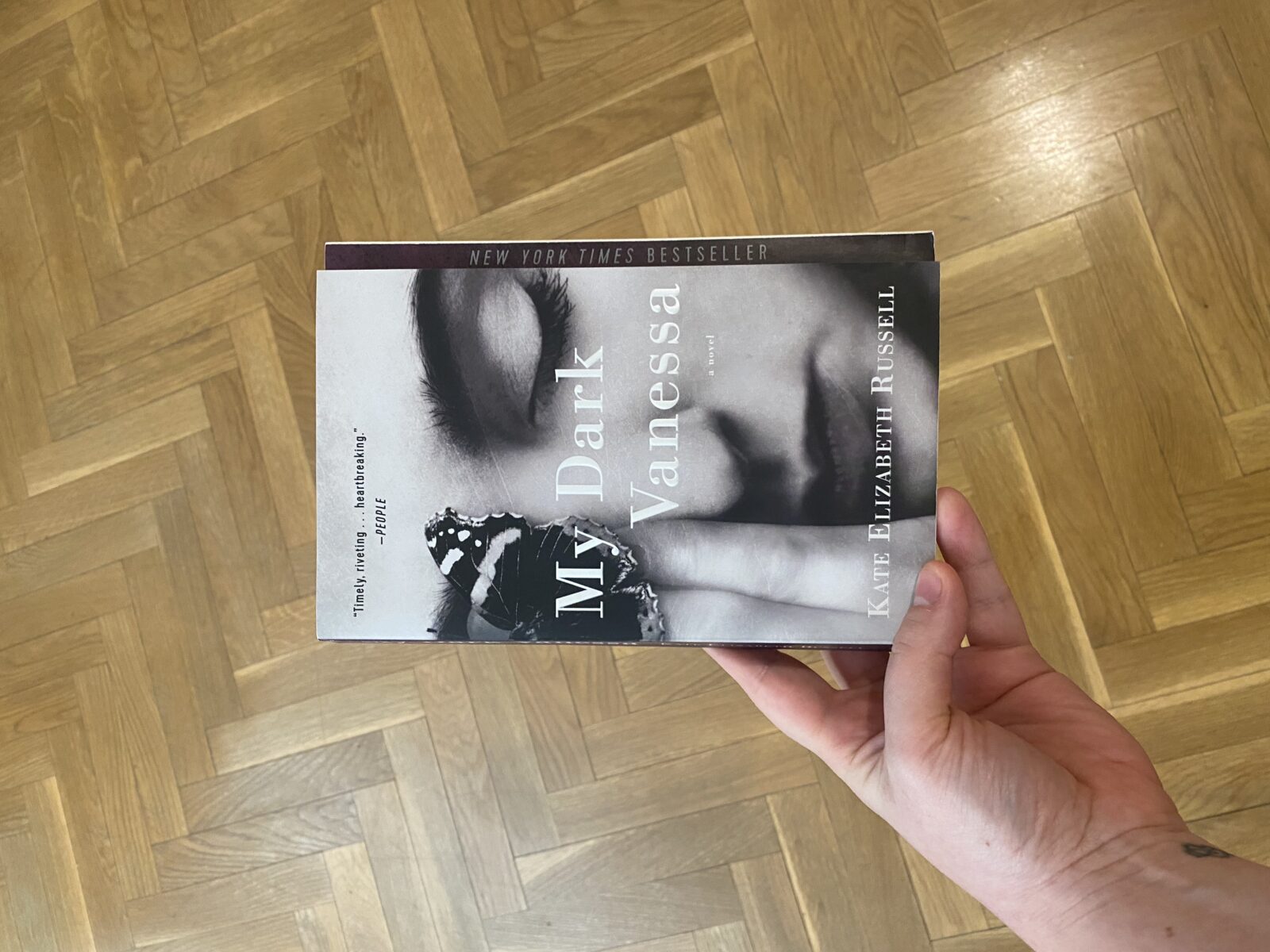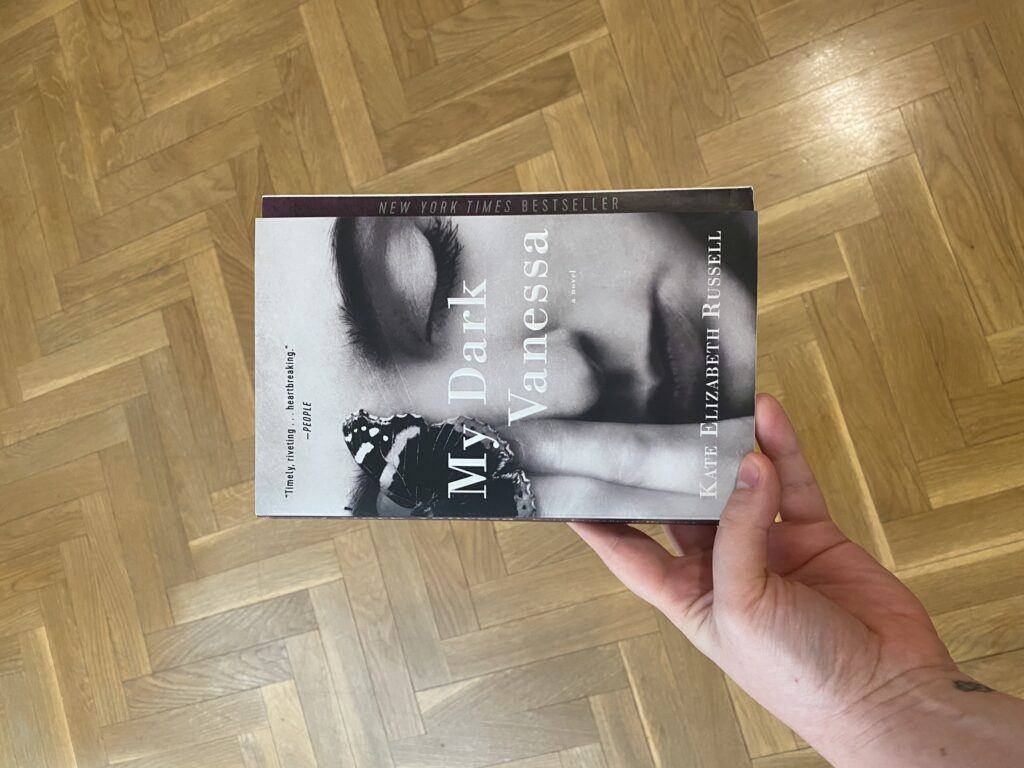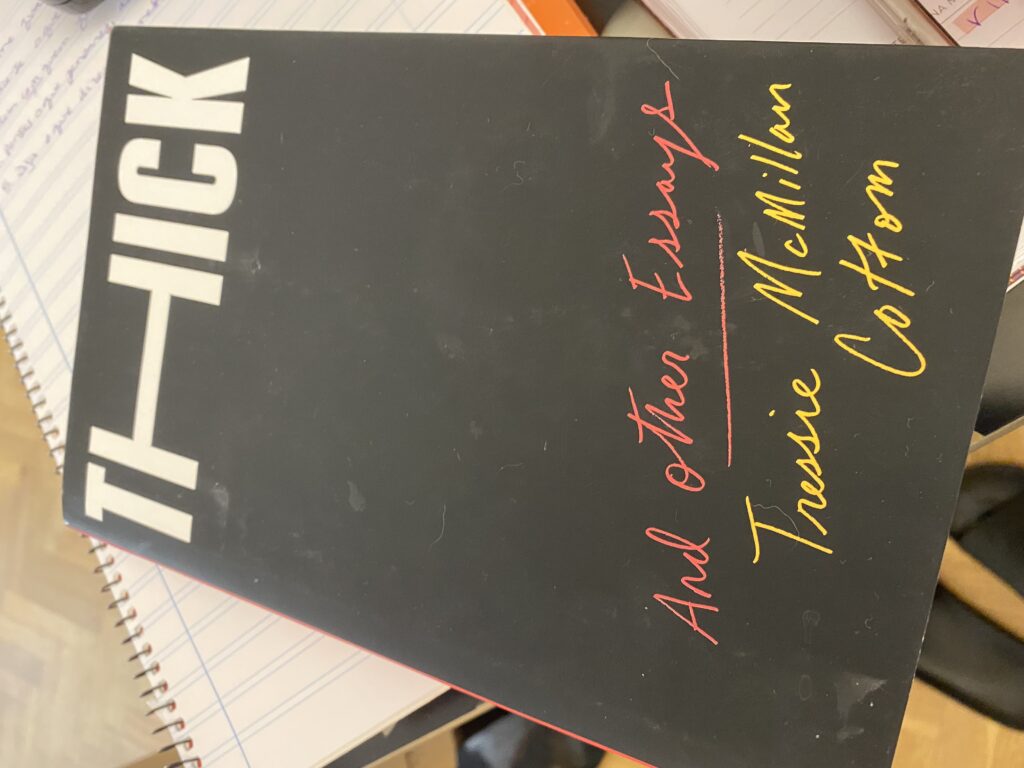My Dark Vanessa, Kate Elizabeth Russell
My Dark Vanessa was recommended to me by one of my students over a year ago; she said it made a deep impression on her, and I 100% agree. It is a haunting account that tells the story of a boarding school teacher who preys on the students he teaches and the more than 15-year relationship he has with one of them. Moving between the present day and when the narrator was 15 years old, it documents not only the trauma that the narrator suffers, but also the complicated narrative that she tells herself in order to force herself believe that she is not a victim; but rather, the main actor in the circumstances of her life. Until the era of Me Too comes along and more of his victims begin to come forward and even make contact with her and she begins to deal with the trauma he inflicted upon her. This piercing novel is a must read in today’s society when understanding victims and the trauma they have experienced is so important and yet still widely so misunderstood.
Thick: And Other Essays, Tressie McMillan Cottom
Tressie McMillan Cottom is a Black professor and intellectual whose essay collection talks about all the ways that society has always, and continues to, fail black women. The essays vary in topic from the sexualization of young black girls, keeping Black people poor, how Black women are not taken seriously, and my favorite essay, the real cost of society’s (fake) version of beauty. In this essay, McMillan Cottom talks about how society’s version of beauty is unattainable for Black women because society only deems whiteness as beautiful, but that that in and of itself is also a false narrative because without Blackness, whiteness would also cease to be. You can’t have one without the other. She also emphasizes that women’s desire to fit what is ‘beautiful’ is actually a “powerful weapon” for our exploitation, and also a big waste of time, because “beauty isn’t actually what you look like; beauty is the preferences that that reproduce the existing social order”. Just like diet culture, beauty culture wants to keep women subjected to false standards that distract us from the real issues: sexism, racism, and the patriarchy’s repressive dominance. She ends the chapter with this powerful statement: “They say that beauty is in the eye of the beholder and that ugly is as ugly does. Both are lies. Ugly is everything done to you in the name of beauty. Knowing the difference is part of getting free.”


